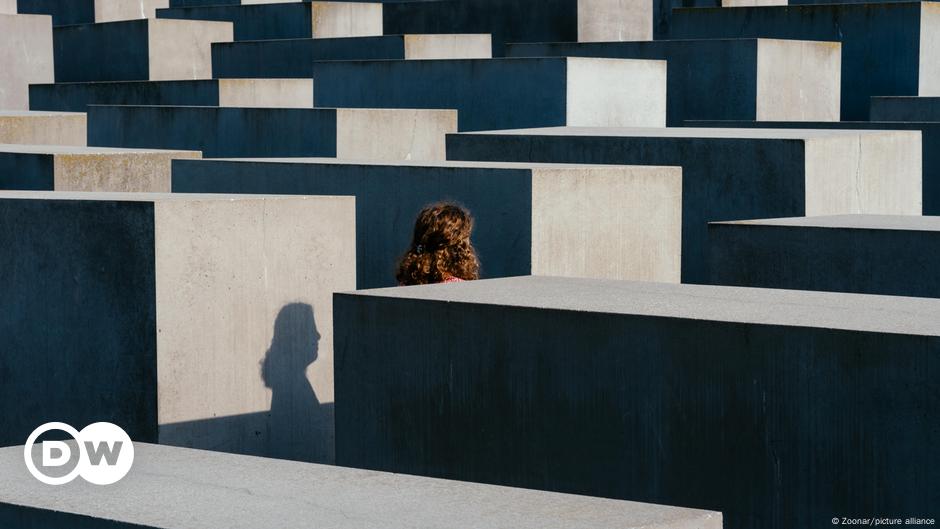Descendents and civil society groups have long demanded official recognition of the crimes committed by German colonial forces in AfricaImage: IPON/IMAGO
Della sees the current challenges of climate change, migration and displacement, and continuing trade inequalities, racism and anti-Black racism, as direct consequences of the European colonial era and that understanding colonial history is essential to dealing with these challenges — however difficult it may be to confront that history.
“I fear that [the reaction] is partly related to the fact that it means we have to ‘revisit’ a history that is not particularly positive for the writing of German history, for Germany’s self-image, that so many people find it difficult to take these aspects of German history into account,” he said.
Remembrance culture in a globalized world
Like Della, Sebastian Conrad, a professor of global and postcolonial history at Berlin’s Free University, does not share the view that the proposed reforms, in particular the inclusion of Germany’s colonial history, could lead to a trivialization of Nazi crimes.
“I don’t share the premises of the criticism, that as soon as we are commemorating something else we are relativizing,” he told DW.
For Conrad, the debate over remembrance culture reflects broader societal issues, in particular the issue of migration to Germany since 2015, which he says is often discussed on the level of memory politics. But as society changes, Conrad holds, the memory of the past is bound to be transformed as well.
What colonial crimes did Germany commit in Africa?
To view this video please enable JavaScript, and consider upgrading to a web browser that supports HTML5 video
“”Every year, Germany changes — new Germans are born, new Germans come to the country. It would just not be realistic to think of memory as something stable and fixed, something frozen in time, something agreed upon and that’s the way it remains,” he said.
“The globalizing world in which we live has a longer history and this history is one where colonialism played a crucial role,” he added. “So, whenever we want to understand how we got to our globalized present, we need to understand the history of imperialism, of empires, of colonialism as well.”
Coming to terms with a past that is still present
Henning Melber, a German-Namibian political scientist, anti-colonial activist and author of a forthcoming book about the legacy of Germany’s colonial rule, describes the response to Roth’s proposals as “sad and regrettable.”
“It almost seems to be a knee-jerk response, to be afraid that adding two more pillars to the commemoration of the Holocaust and the GDR — which, interestingly enough, was never considered to be a competition — would take away attention but possibly also funding for their activities,” he told DW.
Germany handed back the human remains of indigenous people killed during its genocide in Namibia in 2018, but many more have yet to be returnedImage: IPON/IMAGO
The Holocaust is often described, especially in contemporary Germany, as a “break in civilization” (“Zivilisationsbruch”), but postcolonial criticism argues that European colonial powers had already established a racist and violent rule, including genocide, in the name of civilization, before the Holocaust happened. Germany’s own violent colonial history includes the genocide of the Herero and Nama (1904-08) in present-day Namibia and the brutal suppression of the Maji Maji Rebellion (1905-07) in present-day Tanzania.
“All those who demand adequate engagement with colonial crimes have never questioned that the Holocaust culminated in a singular form of planned, systematic, industrial mass extermination of a specific group, or rather one should add, of specific groups in the plural,” Melber said.
“If I try to understand the perspective of the Herero and the Nama, the extermination strategy that killed most of their ancestors was a singular experience, so their victimhood is also one of singularity,” he added. “It does not mean that they are the same. Nobody would say that. The demand is to give adequate recognition to the victims of these crimes and to demand sufficient atonement.”
While Germany has often been praised for its remembrance culture around the Holocaust, Melber says it has “utterly failed” when it comes to the violent history of the German empire in the colonies, in part because former colonial powers are still beneficiaries of a (white supremacist) system based on exploitation, subjugation and oppression.
A. Dirk Moses, professor at the City College of New York and senior editor of the Journal of Genocide Research, agrees with Melber’s assessment. “The extant model of singular Holocaust focus has failed. It is not connecting with younger Germans, irrespective of background, because it is seen as ancient history, divorced from their lifeworlds. But a full reckoning with the German past would bridge that gap by showing how the intersecting processes that constituted the German nation-state affect them today.”
The colonial history and genocide scholar also points out the “often violent cultures and practices of racist exclusion and inclusion” in the imperial colonial era as well as the Holocaust “were not truly ruptured in 1945, which is why racism and antisemitism continue to the present day.”
For the German-Namibian scholar Melber, “being willing to acknowledge history with the consequences that it had for us as beneficiaries and those who were on the receiving end creates a massive moral problem,” whatever form remembrance cultures take. “How can we truly come to terms with that past in the present, because it’s not past, it’s present. Basically it means: How much are we willing to give up?”
Edited by Ben Knight and Kyra Levine
While you’re here: Every Tuesday, DW editors round up what is happening in German politics and society. You can sign up here for the weekly email newsletter Berlin Briefing.
Source link : https://www.dw.com/en/germany-controversy-over-culture-of-remembrance-reform/a-69148929
Author :
Publish date : 2024-05-23 07:00:00
Copyright for syndicated content belongs to the linked Source.
